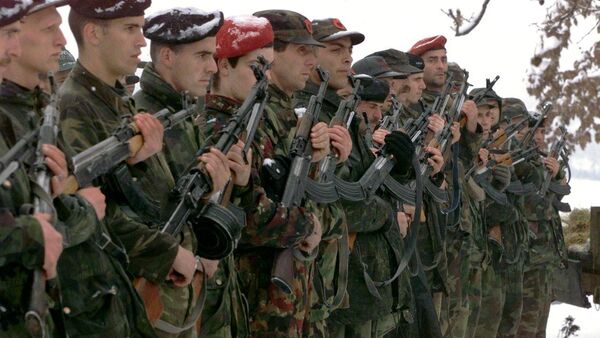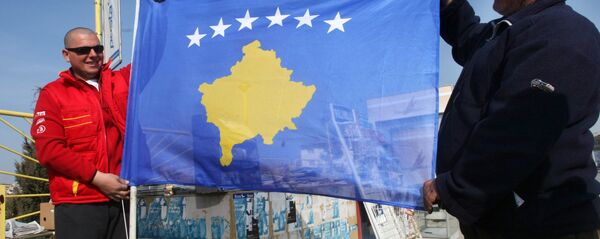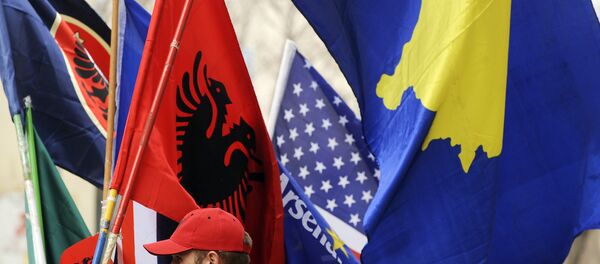The court will investigate the crimes committed against ethnic Serbs by representatives of the so-called Kosovo Liberation Army during and after the conflict.
Earlier, Schwendiman served as lead prosecutor of the EU's Special Investigative Task Force on Kosovo; also, he was a war crimes prosecutor in Bosnia in the late 2000s.
He retired from the US Department of Justice in 2014 after representing this body at the three Olympics and working in Bahrain, Vietnam, Thailand and Bangladesh.
Separately, he dealt with judicial issues at the US Embassy in Kabul. According to media reports, Schwendiman also took part in the investigation of a spate of corruption cases in Afghanistan.

Commenting on Schwendiman's new nomination in an interview with Sputnik, Milovan Drecun, head of the Serbian parliament's Committee on Kosovo and Metohija, underscored the importance of the new court being in line with highest international norms.
He warned against a repeat in the new court of the biases that were in place in the International Criminal Tribunal for the former Yugoslavia (ICTY).
"If we see those who will manage to avoid being punished by the new court, speaking of high international standards will be irrelevant," Drecun said, also warning against political pressure on the court.
It is worth recalling in this regard that the ICTY never sentenced a single high-ranking representative of the Kosovo Liberation Army, nor did it pay attention to the fact that during the process, the witnesses of the prosecution often died under strange circumstances.
At the same time, former Serbian Prime Minister Nikola Sainovic and Yugoslavia's former Military Chief of Staff Dragoljub Ojdanic got long prison terms, not to mention former Yugoslav President Slobodan Milosevic, who died in prison, failing to live to see his verdict.
Prominent Serbian lawyer Goran Petronijevic told Sputnik that he does not believe the new court will take an unbiased position.
He referred to the ICTY, which he claimed was dominated by the US, an example which Petronijevic said shows how Washington seeks to influence prosecution policy in a certain region.
He said that he is concerned about the fact that the creation of the new court is out of sync with international law. According to him, this is a Sui generis court, only formed in order to strengthen the thesis of those who created it.
"They set up a special court for Kosovo instead of demanding changes in the ICTY status so that it can investigate the crimes committed by the Albanians and apply the same standards it applies toward Serbs. I am afraid that this will never happen and that the new court aims to protect criminals [who are ethnically] Albanian," he said.
The Special Investigation Team was formed in 2011 to conduct an independent investigation of human organ trafficking in Kosovo, which is described in the report by Council of Europe reporter Dick Marty.
The Kosovo Liberation Army was formed during the mid-1990s by Kosovo Albanians seeking independence from Serbia and the creation of a monoethnic state. Kosovo declared its independence from Serbia in 2008.





